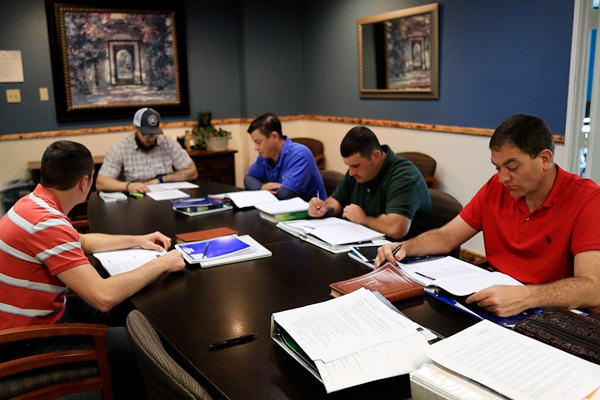
This year marks the 50th anniversary of the founding of Heartland Adult and Teen Challenge, a nonprofit interdenominational faith-based mission group that helps men with drug and alcohol addictions.
With a Murfreesboro outreach center, as well as campuses in Clarksville and Memphis, the faith-based recovery support program assists those 18 years old and up with life control problems.
“The sole purpose of the program is not just getting them off drugs, but most important, teaching them a new frame of life,” said Rev. Gene Garcia, outreach director of Adult and Teen Challenge of Murfreesboro.
“If someone is looking for help, I really hope they reach out and contact me,” Garcia said. “Just call me at 615-624-7878. I want people to know that if they need help, there is help there and people can really get whole help with this program.”
The program is a year minimum, typically with an eight-month residential live-in phase followed by a four-month reentry phase. There is no waiting list to get into the program.
It costs $500 a month with a one-time $250 processing fee.
“But if there is someone who is really serious and really needs help and is struggling financially, we try to help bridge the gap so they can get the help they need,” Garcia said.
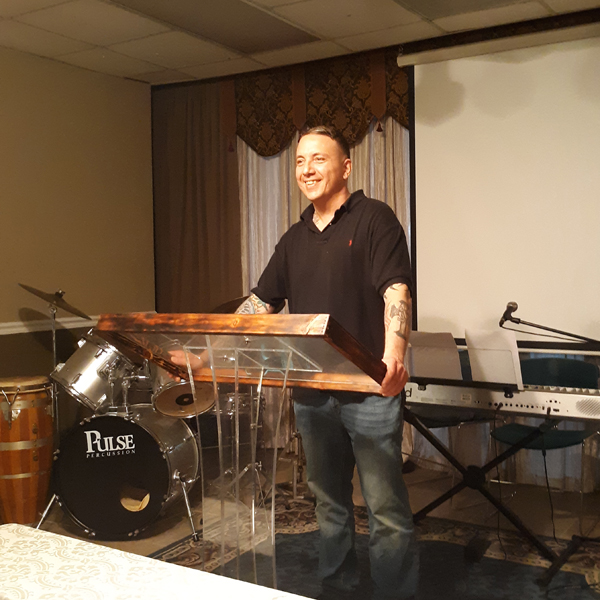
Rev. Gene Garcia, outreach director of Adult and Teen Challenge of Murfreesboro
“We accept men with drug or alcohol addictions who are sincere about changing their lives. The program is highly structured and intensive. The men get one-on-one advisement on addiction and other problems along with church and chapel services each week. And our program allows students to develop job retention skills, coping skills, education assistance including GED training and testing, job acquisition support and budget training.”
Garcia said they also work with various different detention centers so if someone who is incarcerated is approved for the program, they can actually be released to the program and get all the program’s benefits.
“It’s a great program—I know for a fact because I went through it myself a long time ago,” Garcia said. “I experienced it, I experienced what happens at the program, it showed me how I don’t need drugs to get through a day—all with the help of God.
“I was addicted to opioids, heroin, you name it. I went through the program years ago, and I continued on with the ministry.”
Garcia said the chief operating officer and executive director was addicted to crack cocaine 20 years ago. He went through the program—now he has two master’s degrees and has served with the National Reserves for 18 years.
Evangel University’s Center for Compassion coordinated a survey that measured the effectiveness of the Adult & Teen Challenge program by assessing the well-being of graduates one year following program completion.
Results of the survey published in 2019 found that 78% of graduates from Adult & Teen Challenge centers remained sober and substance-free following graduation; 92.9% reported no new legal problems post-graduation and 91% reported improved quality of relationships with family members.
A total of 74 Challenge centers participated in the study and 340 program graduates fully completed the survey.
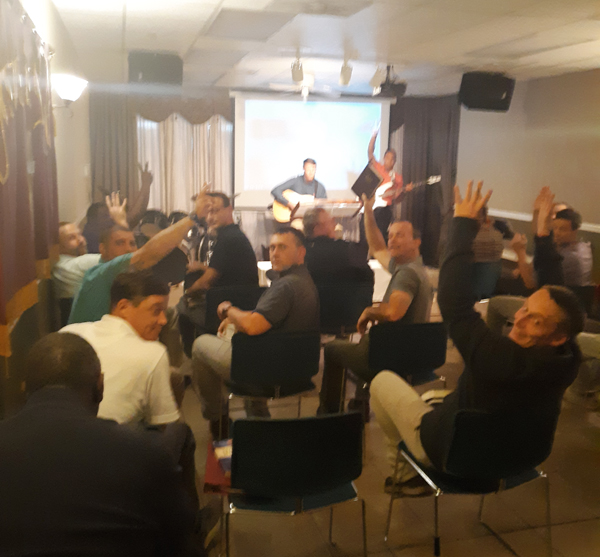
“We tend to find someone who is ready and wanting help—those are the ones who really get the help. They are open to it and submitting to it,” Garcia said. “And, you know, we also believe in the power of prayer, and that God, the Bible says, what may be impossible for man is not impossible for God. We’ve seen that countless times with this mission.”
When someone applies for the program, there is an intake process to find out if they are a candidate, which is done to protect the population, Garcia said. Then they work on getting the candidate into the program.
“In the program we teach them the Biblical principles and classes on life coping skills, and they learn their identity through Christ through principles in the Bible,” he said. “They learn that their past doesn’t define them, and their struggles don’t define them. If they’re having a bad day, that doesn’t define them. Just because they’re having a bad day, doesn’t mean they have to do bad things and be led by emotions. Emotions are fleeting, they come and go and they’re misleading.”
Heartland Adult and Teen Challenge has campuses in Murfreesboro and Clarksville where people live and an outreach center in Murfreesboro.
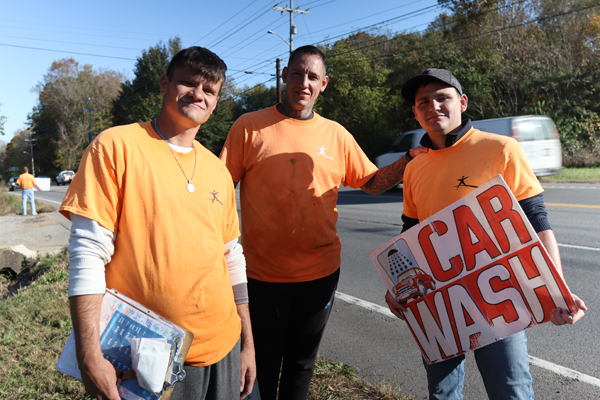
During the program’s first eight months, Garcia said, the men live on campus. They need to overcome whatever is controlling them so they can be a functional part of society. They work for the ministry, have the one-on-one advisement, and take part in group activities and church and chapel services, but at the same time they are closely monitored by the staff that actually lives on campus with them.
Participants don’t make it to the next stage unless the staff finds that they are ready. The staff has meetings and discussions talking about students and their shortcomings and where they may need help and they confront them to help them.
During the last four months of the program, the students are slowly getting acclimated into society; at the same time, there are still random drug tests and nicotine tests, breathalyzers on campus, and random searches at times throughout the building, which, Garcia said, they do as a deterrent because we want to see these men succeed.
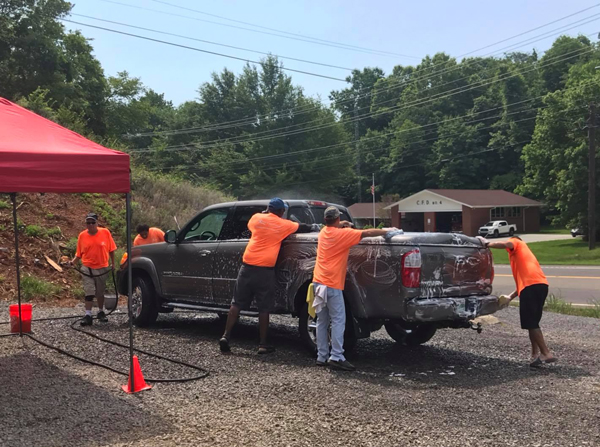
“This is so when they get those bad thoughts, they think to themselves, ‘you know what . . . before I do that, let me not do that.’ They know there’s negative consequences for their bad choices.”
During the last four months of the program, participants create a strategic plan for where they’re going to work and live, Garcia said.
The program also involves the community, with the participants visiting different churches and taking part in various church events.
For more information or help, contact Rev. Gene Garcia at 615-624-7878 or atcofmurfreesboro@gmail.com and visit atctn.org.



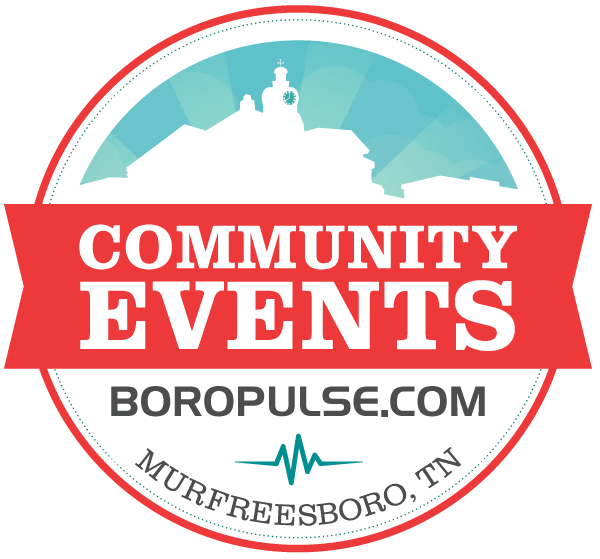









I have had the privilege of getting to know Rev. Gene Garcia. What a great man with a passion for helping others.
This is an amazing organization that is worthy of our support here in Murfreesboro and nationally.
Comment January 7, 2022 @ 1:09 pm